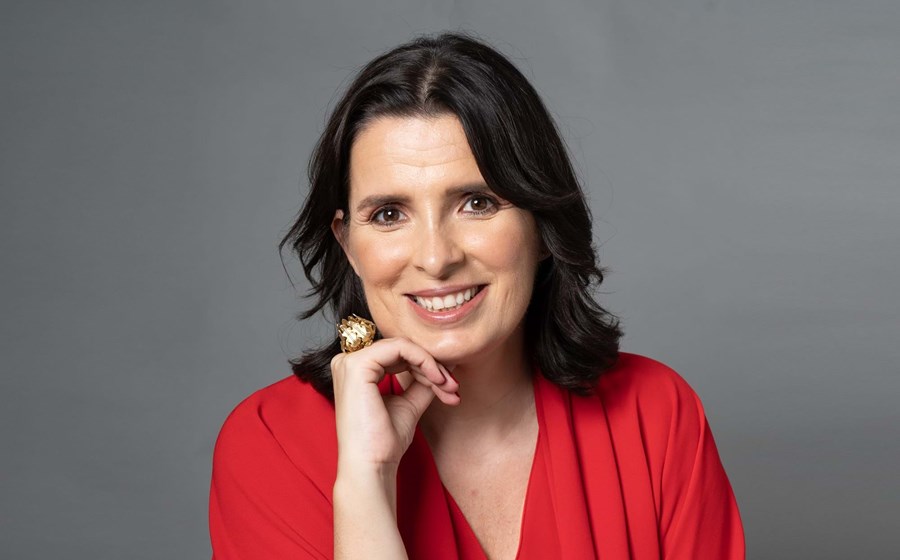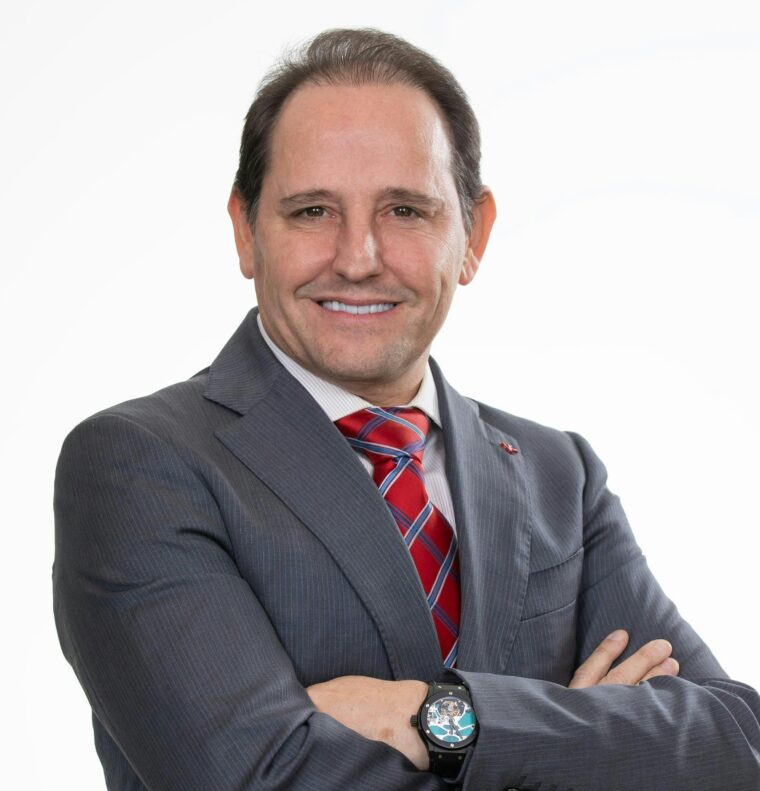Portuguese people who are making a name for themselves abroad are helping to find out where business opportunities are and what kind of companies and activities the country can attract. An initiative that brings together Negócios and the Portuguese Diaspora Council.
1- What led you to leave Portugal?
The conviction that it was the right time to leave my comfort zone, coupled with the high tax burden, were decisive in my decision. Leaving the pharmaceutical industry was a risk, but it offered a unique opportunity to develop top management skills in intercultural environments. On the other hand, I have always had a special interest in dealing with government relations and market access issues.
Expatriation required agility and adaptability, but today it’s a privilege to work alongside top businesspeople (Portuguese and Middle Eastern). It was a sometimes-frightening growth curve, as I was protected in the role of manager, buoyed by the strength of multifunctional and extremely efficient teams. I now work with directors, CEOs and General Managers who are expanding internationally.
I can’t help but list the financial advantage.
The Middle East exposed me to an emerging market; highly qualified people; ambitious, well-prepared partners and clients with well-structured business needs; deciding in a context of imperfect information and culturally very distant teams.
To summarize (laughs)? Curiosity, a spirit of adventure, career acceleration, financial progression, business impact. On a personal level, bringing up my daughter Maria in a multicultural environment, preparing her to be a global citizen.
2- What advantages or disadvantages did being Portuguese bring you?
The pacifist tradition and the good reputation of the Portuguese around the world help us to be seen as competent, adaptable, consistent and innovative. There are no significant disadvantages, apart from the fact that the Portugal brand is not strong, affecting the potential for attracting Foreign Direct Investment.
Compared to other communities living in the region, we are less structured. The liaison between the Portuguese Diaspora Counsellors in the Middle East and the Portuguese Embassies, Business Councils and AICEP is crucial to increasing our visibility and cohesion. Although Portugal is geographically peripheral, it doesn’t have to be in terms of its ability to negotiate in the region.
3- What obstacles did you have to overcome and how did you do it?
Over the course of my 19-year career, I’ve learnt a lot from adversity, mistakes and success. I’ve grown and developed resilience. I had to free myself from the scale of Portugal. My reference points were those of my everyday life, which limited the impact of my actions. ‘The future belongs to those who can imagine it, design it and realise it. It’s not something you wait for, it’s something you create.’ This is the state of mind in the Emirates, which didn’t always come naturally to me (laughs).
On a personal level, the distance from my family was a challenge and required emotional balance. However, the extraordinary adaptation of my daughter, who was 2 years old when she landed in Dubai without knowing a word of English, the tribe of friends we already have in the region and the technology dispel the (very Portuguese!) homesickness and support this expat experience.
4- What do you admire most about the country where you are?
I lived in the vibrant stone jungle of Downtown Dubai for three years. Today I live in peaceful Saadyiat. The United Arab Emirates (UAE) is a country of contrasts, extremely welcoming, with a people of unrivalled elegance and efficiency and a fascinating culture, due to its tradition (and pride in its roots), cultural diversity and clear vision of the future towards which we are all heading (at a rapid pace). The region is culturally rich, full of ambition, led with vision and where ‘more-or-less’ / ‘get on with it’ have no place. To quote Dubai’s leader, ‘Whether you’re a lion or a gazelle, when the sun comes up in the Emirates, you’d better start running.’
In this country of around 10 million inhabitants, the vast majority of whom are expatriates, the future is built with a serenity that is coated with seriousness and a sense of urgency. Here, we feel part of that construction, where disruption, learning from mistakes and innovation are the motto. I admire the structured investment (articulation between the public and private sectors, public policies and investment) in artificial intelligence, genomics, personalised preventive medicine and longevity. It’s a privilege to live this reality!
5- What do you admire most about the company or organization where you are?
Customer focus and public and private partnerships in Portugal and the Middle East. This year we embraced the focus on integrating younger generations, creating growth opportunities for those considered to have high potential, both in terms of the INOV Contacto programme and by supporting the ‘emiritisation’ policy, promoting the transfer of knowledge from Portugal to the region.
6- What recommendations would you give to Portugal and its entrepreneurs and managers?
Even though there is a frank lack of knowledge about geography, they should seriously invest in getting to know the market. It’s a unique area, with investments of more than 3 trillion (USD) over the next decade, where there are huge opportunities for companies and professionals, both directly and through partnerships. I would also emphasize the fact that Portugal has very attractive companies / sectors for investment by companies and funds.
For Portugal? I would like to see greater clarity in the definition of our strategic interests and assertiveness, efficiency and resilience in their defense.
7- In which sectors of the country where you live could Portuguese companies find customers?
There are many business and investment opportunities in the UAE. I would say that construction, banking, ports, tourism, energy, new urban mobility and health are the main targets today. The UAE, with a GDP of more than 500 billion (USD), is showing sustainable growth where industry and services are now dominant, contradicting the generalized idea of dependence on oil. The Falcon Economy is based on diversification and oil independence. I would challenge you not to just look at the UAE, but to analyze the region, where the volume of investment and levels of economic growth are almost unparalleled globally.
8- In which sectors of Portugal could companies in the country where you live want to invest?
Portugal has established itself as an attractive business destination and a strategic gateway to Europe. We have promoted various programmes to attract companies and promote emerging sectors such as technology, tourism, renewable energies and biotechnology, attracting investment from companies and sovereign wealth funds. AICEP has implemented various strategies to promote Portugal’s competitive advantages, with the Chambers of Commerce and the Diaspora playing crucial roles in publicizing these opportunities, the coordination of which could be optimized.
Out of professional interest, I closely follow the areas of health, health tourism and ageing. I believe that Portugal can stand out as a leader in these sectors, provided there is investment in projects and infrastructures.
9- What is the competitive advantage of the country in which you live that could be replicated in Portugal?
The UAE has several unique competitive advantages, such as strategic vision, investment capacity, focus on results and efficiency. These characteristics attract highly qualified professionals and demonstrate that a favorable, stable and innovation-focused business environment attracts investment and drives economic growth.
In order for Portugal to stand out globally, it is necessary to adopt a clear and sustainable political and economic strategy, investing in differentiators such as simplifying bureaucracy, reducing taxes and strengthening the country brand, thus making it more attractive to investors and companies.
10- Are you thinking of returning to Portugal? Why?
I’m thinking of returning to my country ‘one day’. In the meantime, and while I remain an expatriate, I intend to gain skills, work with other cultures, absorb what is done ‘out here’, make mistakes and learn (a huge asset!), always instilling in my daughter the Portuguese identity and language.
I would like to return and contribute, with the experience I have gained and my network of contacts, to the success of the Portuguese business community and universities. During this interview I realized that plans to physically return to Luso soil are still a long way off. I will return to Portugal with intellectual contributions, predominantly remote, in projects to attract funding, internationalize companies and cooperate with academia, preferably with an impact on strengthening the Portuguese health sector.







